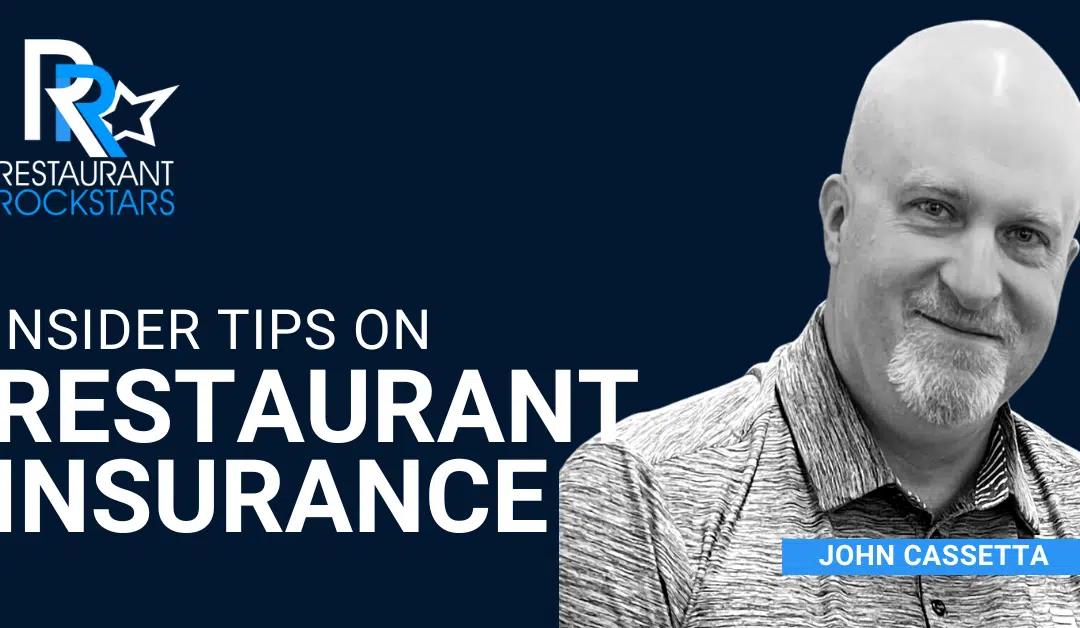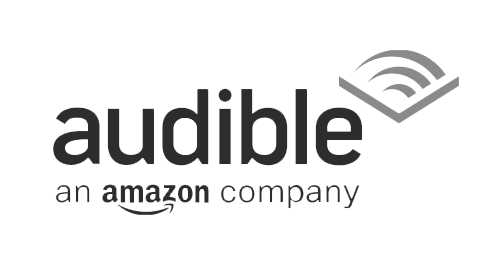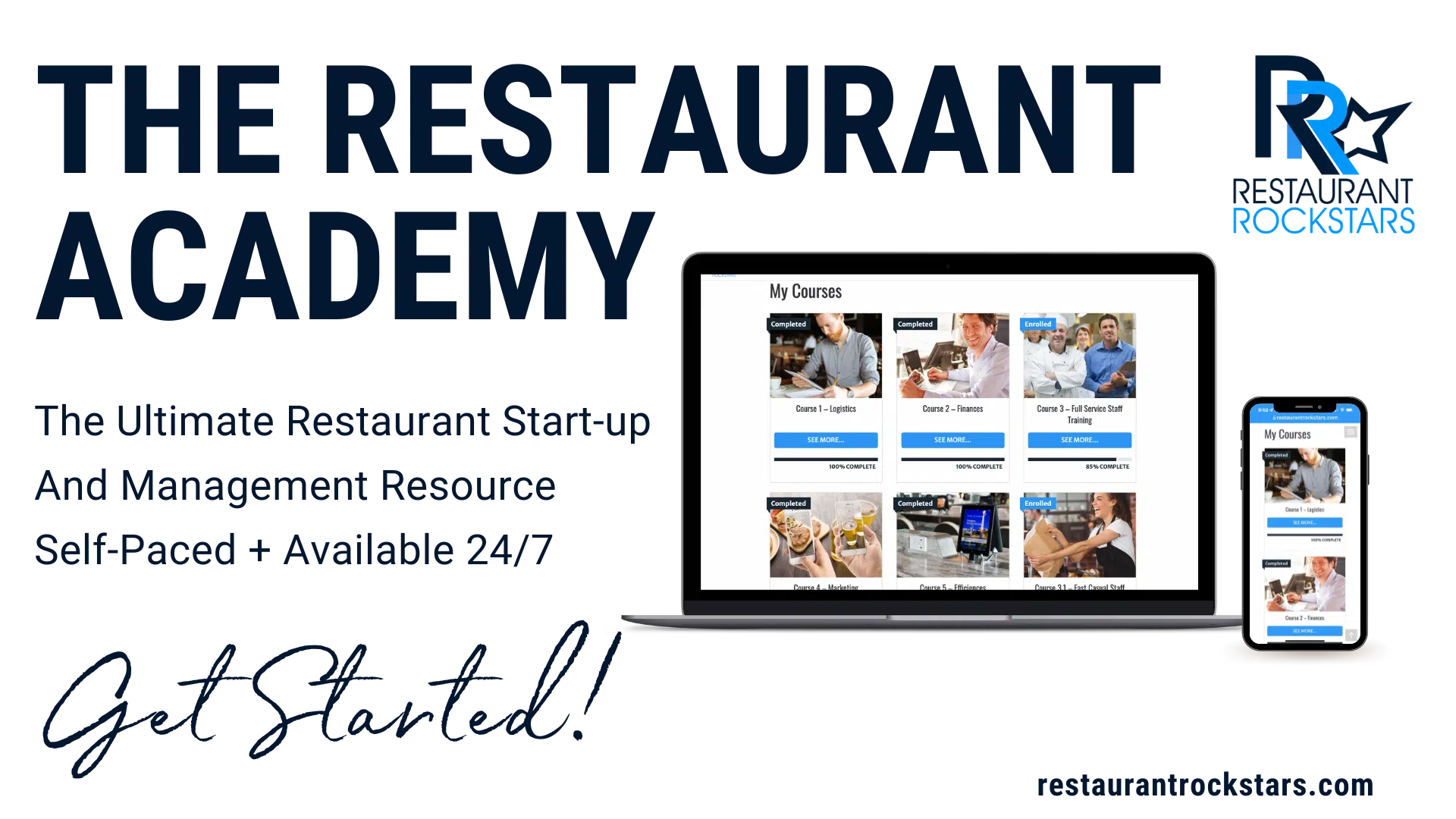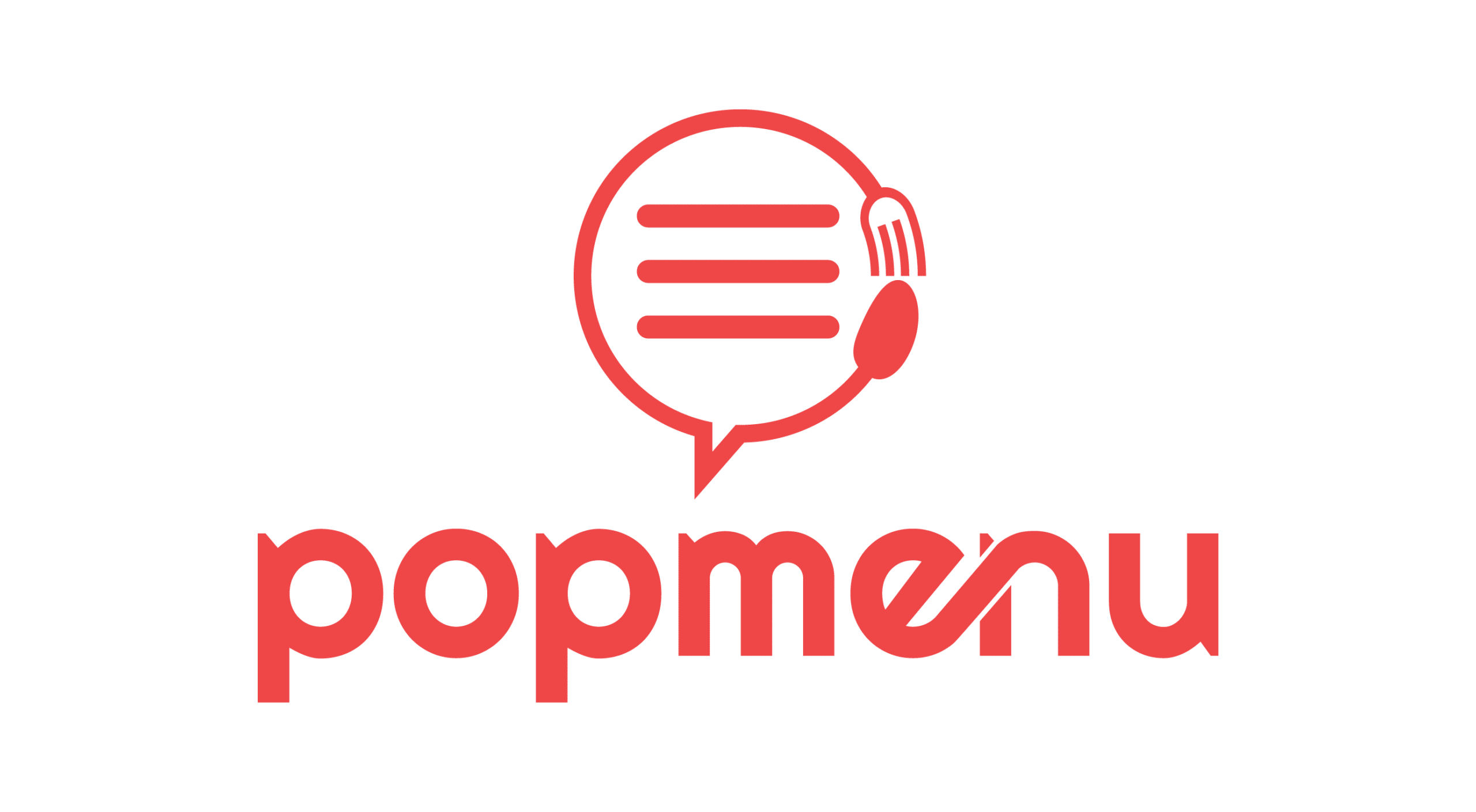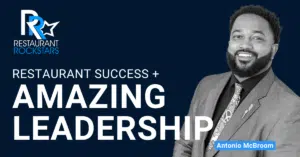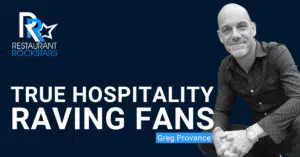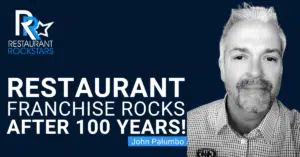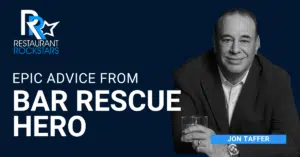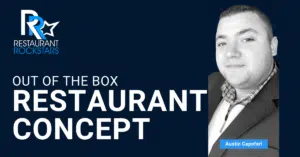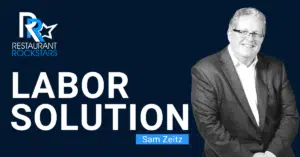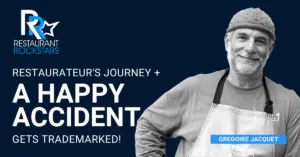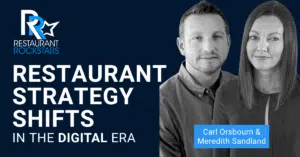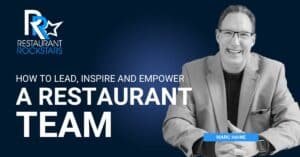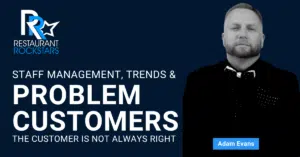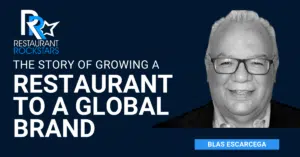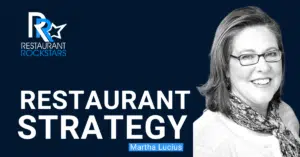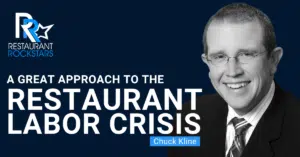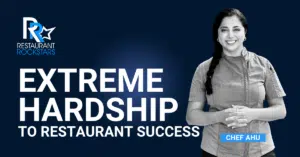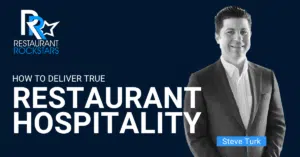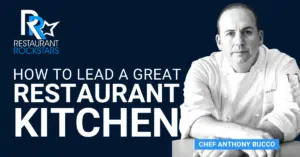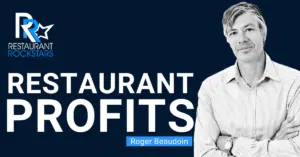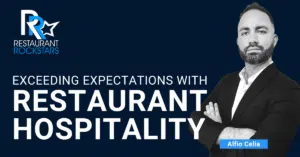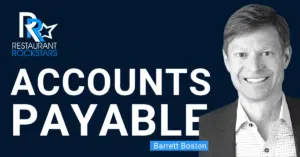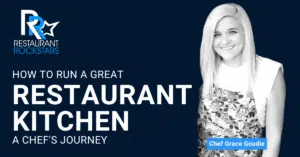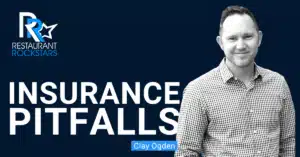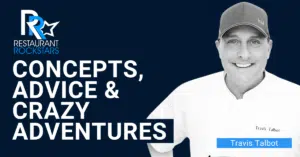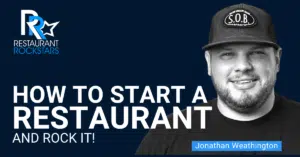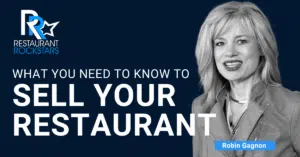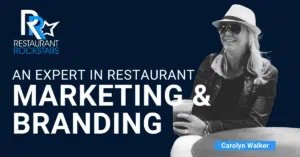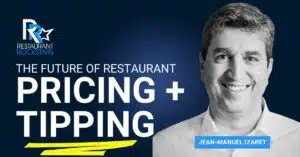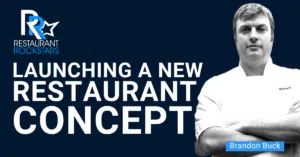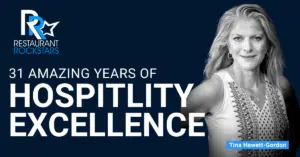Restaurant Rockstars Episode 352
Restaurant Insurance Tips
LISTEN HERE OR ON YOUR FAVORITE PODCAST PLAYER
Prefer to watch the interview?
Click the video below.
This is a high-risk business and the unexpected really could be around the next corner.
You need to cover your business with proper restaurant insurance for what you know could happen as well as what you don’t know could happen.
There are so many types of coverage and so many questions, but thankfully today’s guest is a hospitality veteran and restaurant insurance expert.
In this episode of the Restaurant Rockstars Podcast, I’m speaking with John Cassetta, Head of Restaurant Insurance Solutions for CoverWallet, a leading provider to the restaurant industry. John cut his teeth in restaurants and his sons are now following in his footsteps, so he understands your business.
Listen as John teaches us the following about Restaurant Insurance:
- The most common risks facing restaurants today.
- Restaurant insurance essential to your business regardless of size
- How he works with each client to evaluate their business insurance needs
- The importance of umbrella policies for added coverage and peace of mind.
- .. the how and why restaurants are being targeted.
- Business Interruption, Employer Practices & Product Liability coverage
And a real deep dive into serving alcohol and what Liquor Liability does and does not cover.
This episode is a crash course in restaurant insurance, so watch or listen, make sure you’re covered then go out there and Rock YOUR Restaurant!
Roger
Connect with our guest:
- coverwallet.com
- CoverWallet Twitter: @CoverWallet
- CoverWallet Facebook: @CoverWallet
- CoverWallet LinkedIn: @CoverWallet, An Aon Company
- CoverWallet Instagram: @coverwallet_ins
0:00
But one person’s idea of a good time is another person’s idea of harassment. And it’s not about the intent, it’s about the end result, right? Doesn’t mean that I meant to harass you, I did, because you felt that way. And that’s where the employment practices may hear me just flip and call it EPL. But EPL was there to protect the business owner, because at the end of the day, you’re the one that’s responsible for the activities that are going on in your establishment.
0:25
Thanks for tuning back into the podcast. This is a topic today that is so important to this industry and to small business and restaurants in general. It’s all about the ins and outs of insurance, and the risks, and all the different types of coverages that are now more important than ever in your business. I’m speaking with John Casetta. And he is the head of restaurant insurance solutions for a company called Coverwallet. We’re going to cover all the risks, all the solutions, and the variances in costs based on the risk and where you are in the country. We’re going to talk about cyber attacks and all the big risks right now that are happening that are beyond seemingly beyond your control, and even some of the unexpected things that you might not be thinking about, but certainly all the ones that are super important for your business, so stay tuned. Thanks to the sponsors of this week’s episode. Thanks to our audience for tuning in. On with the episode.
1:20
You’re tuned in to the restaurant rockstars podcast powerful ideas to rock your restaurant. Here’s your host, Roger Beaudoin.
1:36
People go to restaurants for lots of reasons for fun celebration for family for lifestyle. What the customer doesn’t know is the 1000s of details it takes to run a great restaurant. This is a high risk high failed business. It’s hard to find great staff. costs are rising and profits are disappearing. It’s a treacherous road and SMART operators need a professional guide. I’m Roger. I’ve started many highly successful high profit restaurants that I’ve now sold for millions of dollars. I’m passionate about helping other owners and managers not just succeed, but knock it out of the park. I created a game changing system and it’s filled with everything I’ve learned in over 20 years running super profitable, super fun restaurants, everything from creating high profit menu items and cost controls to staff training where your team’s serve and sell to marketing hooks money maximizing tips and efficiencies across your operation. What does this mean to you more money to invest in your restaurant, to higher management, team time, freedom and peace of mind. You don’t just want to run a restaurant, you want to dominate your competition and create a lasting legacy. Join the academy and I’ll show you how it’s done.
2:47
Let me introduce you to gotab. Gotab is a restaurant commerce platform with a suite of solutions including POS online ordering, mobile pay, and even a kitchen management tool. Now you know I’m all about maximizing sales. But did you know that operators using the gotab platform see 35 to 50% Higher check averages and 20% Higher tips. Now that can be a real game changer for your bottom line. The gotab platform empowers you the operator to run a leaner and more profitable operation. Listen to what gotab customers have to say. Kent says with real time analytics we can manage our plate cost. When we switch to gotab we were able to lower labor costs and increase wages and shares that our chefs and managers love to use gotab. The back end is well thought out intuitive and easy to use. While Kim adds that the gotab team is always available for us and extremely responsive. Gotabs flexible, easy to use solutions will simplify your operations putting you in control of your restaurant success. Visit gotab.com/rockstars today to sign up for a free demo and get qualified to receive a complimentary meal. Again, that’s gotab.com/rockstar.
4:09
John, thanks for being here. Welcome to the show today. How are you? I’m great appreciate they haven’t been I appreciate you being here. So we’re going to cover a topic that is super, super important for our audience and for restaurants and small business in general. And it’s all about the ins and outs of insurance and you are a specialist in operations insurance and that sort of thing. But my first question is usually about the hospitality backstory of my guests. I’m curious, did you ever work in a restaurant or hospitality business before you started your insurance career?
4:37
I sure did I think just about everybody I knew cut their teeth in the food service world when we were younger, and you know, I always enjoyed it. Before I talk about me, I’m gonna mention I have two sons who both work in the food service industry right now. And largely because I steered them in that direction saying there’s no better way to learn, you know the ins and outs of a good work ethic. I think then then the work and food service. Once I did that, you know, in high school and college, as my career was developing in the insurance world, I still work multiple jobs because one I had to and to, I enjoyed it and continue to work in food service for for many, many years.
5:18
So you’ve got experience then and this is a business of passion. It’s a business of relationships, and you can carry your life experiences along with you on what you’re doing now, and you can really help restaurants. What are your sons doing in the restaurant space right now?
5:33
They’re both working in a kitchen in a local microbrewery. Oh, very cool.
5:37
All right. So gaining skills moving forward. Cool. Well, thanks for sharing that. That’s always helpful. So let’s talk about what the most common risks are, that face our audience in the restaurant business. Obviously, we’ve got operators of all sizes, we’ve got some that just lease a space, we’ve got those that own the real estate, and those risks are different, and those coverages are different. But let’s talk about some of the common risks. And then we’re going to take a deeper dive into the whole subject.
6:05
Yeah, and, you know, perfect segue, you’ve mentioned, some people on the building, some people lease the building, so not all risks are created equal. But in both of those scenarios, they have stuff, you know, stuffs my technical term for the things of the restaurant. So unless you are leasing everything, and you don’t have any ownership stake whatsoever, in your restaurant, equipment, your tables and chairs, odds are pretty good, you’ve got stuff. You also have the inventory, the food that’s in the in the refrigeration and freezer, where you lose power, and you lose all of your inventory. That stuff. You want to make sure that you’re protecting against those things, because one, one issue could knock you out of business almost immediately.
6:49
Yeah, and lose $10,000. At one time, perhaps if you got a fairly large walk in and that sort of thing,
6:56
large walk in and think and think about what might be in there. If you’re, if you’re specializing in some higher end foods, you know, the grocery bills a little bit more expensive than if you’re if you’re dealing in something that’s that is perishable.
7:09
So there’s a lot of different, you might call it an ala carte list, and we’re going to talk a lot of the major ones. But now that we’re on the subject, I think you’re talking about business interruption, and does that impact losing $10,000 in the walk in, if for some unforeseen event happens, and now you shut down, but you know, your power goes out for a week. And that happened to me a long time ago. And that’s another story. But tell us about business interruption, what might be covered there, because I know that was an important one that I had
7:37
business interruption is something that I think a lot of people don’t always think in terms of, you know, the what the exposure could potentially be, you know, if you have something happened like a kitchen fire, you’re immediately worried about, you know, the building, if it’s your, the equipment, if it’s your and what that means to replace those items. But now you have to think about the fact that you no longer have a worth of income coming in and you still have bills to pay, you might still have to pay the lease, you might still have to pay your employees, you might have to pay the insurance bill, the utilities bill, all of those things are still expected to be paid, and you don’t have an income stream. So if it was a situation that was a covered law, like a kitchen fire, business interruption coverage is critical to be able to keep your doors open and reopen when you do things, you know, the right way to get it rebuilt, replaced whatever it is,
8:31
is there $1 amount that you would assign to a particular restaurant client that is about interruption, especially if a restaurant is brand new, they haven’t been operating before. There’s no history of a track record. Okay, in July of last year, we did 300,000 in revenue, whatever it is, and that we have an idea of what we’re going to be losing. If there’s no track record, how do you assign a coverage to it and then a claim repay potential?
8:56
If there’s no prior history to go on, hopefully, there’s a business plan where you can at least have your forecasted revenues. Right. Okay. Yeah. You know what your projections are going to be. So we’re at least going to have that conversation there too. To come up with something to have for business interruption. As time progresses. Now, you now you now have that track record. So knock on wood, nothing happens your first month, where you have nothing to go on. But at least you have an idea going forward what your revenues are looking like and you’ll be able to better forecast as you move along. Once you’ve opened your door.
9:35
Okay, what are some of the other things that are of prime importance for a restaurant tab because again, we’re talking about an ala carte list, and these things add up, and we want to bundle the most important things together. But then there’s also something called an umbrella. So if you could just sort of let’s talk about individual insurances that you think are really important for an owner to have and then explain the concept of an umbrella over that.
9:57
Yeah, so before we get into the umbrella, we One other thing we want to touch on, because we talked about your your stuff your property, we talked about business interruption of business owner policy, which is a very common way of ensuring a small restaurant, okay, this might not be there for the, you know, the larger mid market type thing. But most of small business America is going to fall under a business owner policy, you might hear me call that a bop BOP. Okay, gotcha. So there’s three components for a bop your property, which we talked about your business interruption, which we talked about, and the other one, which is invisible, and that could be general liability. So those three components all comprise a bop, okay, general liability is there. You know, for the things like a slip trip and fall, you know, a customer’s walking in, they slip on the banana peel. Maybe they took their ankle in the parking lot, and maybe the server, you know, trips and spills, the tray, full of coffees all over your lap. Those are the types of injuries that can happen to a guest. Right? This isn’t employee injuries, these are all related, somebody comes into your establishment and gets hurt. So the general liability to me is, you know, it’s invisible. Nobody thinks about it. But the world is very opportunistic in in how they view things. It’s a
11:16
litigious society is what it is. It
11:18
really is. And that’s the unfortunate part is there’s so many things that you can say, well, common sense. Why would this be an issue doesn’t matter about common sense. It matters that every five year old kid in kindergarten can sing the jingles to three or four personal injury attorney in town. So you’re right. If somebody gets hurt that knee jerk reaction is you sue and you want to protect against that the best way to do that, if you’re a small restaurant is the BOP, right? You get that business owner policy, you’ve now taken care of those those three key components, your general liability, your property, your business interruption.
11:54
I don’t want to confuse anyone, but I’m doing a little bit of research on this. You got a GL policy, of course, but then I’m also seeing something called operations coverage and premises coverage that seems to have some overlap, but there’s some differences. Is that included in a bop or is that separate? And can you clarify what those things are?
12:14
So I can clarify, and I can also muddy the waters a lot at the same time while I do it. So okay. You know, when you start to hear about things like operations and premises, a lot of that comes down to where the the situations occur. Okay. And before I answer any further, I’m going to just take a small step back, when I mentioned the three, the three key components within that, there’s a lot of other moving parts. Okay. So when you look at some of the other coverages that could potentially come into play, they fall into those three categories. Okay. So rather, when you say somebody has a general liability policy, you’re talking about the potential of having a singular policy, that only covers general liability. But what I’m suggesting is that a business owner policy has multiple layers of coverage built into one tight little bundle. All right, it’s one policy that covers those three components. Okay. And within that some of the things that you’re talking about are being addressed, where if you get a general liability, you get a property, you get a business interruption and the three separate policies, they may not match up as cleanly. Does that make sense? It does. Okay, so yeah, so I’ve been answering your question without answering it directly. And the reason for that partly is because not all policies are going to be identical and how the Bop is structured, but the the spirit in which they are constructed is the same.
13:55
Now employer practices is something separate and distinct, is it not? Because that one of the biggest risks right now is all these harassment issues that seem to be happening more frequently than ever, and a lot of businesses restaurants included are not experts at handling this. I know the industry is taking pains to have greater education about certain types of harassment in a business, but still, that doesn’t necessarily protect a business, even though they’re putting their best practices in place, they can still be sued by an employee that is harassed right. So let’s talk about that. I mean, that’s something that would be an add on, but it’s vitally important to have
14:33
so an employer practices policy and, you know, the business owner policy can potentially have that, like endorsed into the bundle. It can also be a standalone. So there’s different ways that that can be treated. But employment practices you hit the nail on the head harassment is huge. Okay. Employment Practices is not just about employees, but it’s also potentially about hiring practices. Oh, yes.
14:57
Okay. discriminatory practices, all those types of things,
15:00
the government has defined what is a protected class, right. And that protection class has expanded in my lifetime, it used to be the, you know, a very basic, you can’t discriminate based on, you know, color religious beliefs, but that’s expanded. Good, it should we should be protecting people and not discriminating based on, on who they are, right. But if anybody perceives that they’ve been discriminated against, you now potentially have a lawsuit. And the Employment Practices Liability is going to be there to protect against that. So it’s not just about the employees that are working for you, but the people that are applying to be your employee and might feel that you didn’t hire them for an unjust reason. But the harassment within the the industry, you have employees that, you know, and again, I have a ton of experience in my son’s work in it, there’s a lot of harassment that is present, when you have a lot of people that are potentially younger, you know, it’s a, it’s a, it’s a very high activity, high excitement type of environment. You kind of get where I’m going,
16:13
sometimes alcohols involved, too, especially at the end of the shift, when, you know, half the, the employees are hanging around having drinks, after hours, shift drinks, that kind of thing. And the next thing you know, it’s like, and then wow, bang, you’re you’re in the middle of something that even though you do your best to discourage it, it’s like these things are happening like all the time, but one
16:32
person’s idea of a good time is another person’s idea of harassment. And it’s not about the intent, it’s about the end result, right? Doesn’t mean that I meant to harass you, I did, because you felt that way. And that’s where the employment practices, you may hear me just slip and call it EPL. But EPL is there to protect the business owner, because at the end of the day, you’re the one that’s responsible for the activities that are going on in your establishment.
16:57
Is there a typical dollar monetary value assigned to a harassment suit that you see generally? And if so, let’s just say it’s $500,000. And I’m just pulling that out in the air. But what would be a typical cost of that policy to prevent something like that from happening to your business that could put you out of business?
17:18
Well, I mean, a policy is going to, that’s a known cost, as opposed to the unknown of what the claim might be true policy that’s going to be based on scale. So the larger the restaurant, the larger the exposure, the larger the premium
17:33
number of employees, all that sort of thing. Number of
17:35
Employees absolutely a big part. There are other variables in there, like do you have things like an employee handbook or an HR provider that is giving you guidance on how to handle certain situations, a lot of times things can be remedied just by having an established written practice, right? Doesn’t mean that it absolves you of all responsibility. But it certainly helps when you can tell people hey, I told you that in writing, and you signed off on it, that if you have a harassment situation, this is the chain of command that you escalate things to and then this is how we proceed right? When you don’t have that the absence of the of the defined process now makes attorneys salivate because they see the opportunity. A claim that’s not settled, you know, is it settled out of court, it’s typically much lower than if it goes through, you know, a jury process, right. If you’re in a civil liability case, bring out the Benjamins, it’s going to be a lot higher, usually about three or four times higher.
18:34
Gotcha that that that makes that really clear. We’re in the business of selling perishable products, products that only have a limited shelf life spoilage is common. You know, date coding things is so critical to stay on top of things. You know, food safety service policies, such as ServSafe is super important. But then, even though you do the best of things, you get the best of intentions, you get really good best practices within a restaurant. What happens if one of your suppliers sells you something that’s tainted, and you don’t know about it? And you serve that and somebody gets violently sick or even worse happens? Right? Obviously, there’s a product liability policy too. But is the vendor going to cover a restaurant if it can be proven that they cause the problem, even though the restaurant itself gets sued? Or is there a bridge that you need with a product liability policy just to cover yourself?
19:33
That is an awesome question that has a lot of layers and it’s hard to give you a clean answer because, you know, you you asked and answered it a little bit where will a vendor provide coverage? You know, the big question is if you can prove it. If I can prove that, that was tainted, if I can prove that there was something else proving things may or may not be possible. So at the end of the day, you know, the A claim is going to start that from the source and potentially work its way backwards. Right? You’re the one that served me the, the bad meal. So I’m going to look to you first, if you can prove that the source of food was the issue and not you, now we’re moving backwards, but can you prove it? Who knows? And if you can prove it, why didn’t you prevent it in the first place? It’s probably the question that’s gonna come up. But there’s a lot of variables that are there. And the answer that I give people when those things come up, not just in your example, but and others that are similar. It’s not whether I can prove it, it’s do I want to leave it to chance that something that’s outside of my control is now going to impact my livelihood? All right, if I focus on what I have control over, I have control over my operations and what I’m doing, and how I’m protecting those operations. Right. If something comes into into play, that I can’t control, I can’t control that the there was a recalled item that I already served, because they didn’t recall it. Right. It’s outside of my control, I needed to protect what I did control. And that was the food that I prepared and served and how I’m ensuring my my business properly. Does that
21:17
it does that totally answers that question. And I guess to take it one step further. One how deep your pockets to defend a lawsuit to go after a bigger company. That’s got legal firepower. And how long would this process drag out in the courts while you’re being sued immediately and your business is at stake? Right,
21:34
exactly. And even if you have the financial means to do it, is that the best way to spend your money? No, clearly not. Right? When you think of the cost to insure some of these things? It’s it’s a known expense that you can just bake into your business plan, right? You I know that what what is going to cost me for my business owner policy, my EPLI My workers comp, those are things that I’ve got budgeted. And that’s how I’m pricing my food, right? I know what my expenses are. I know what my projections are going to look like, we’re good. The unknown scares people. Right? And even if I have the money doesn’t mean I want to spend it that way.
22:15
So your company Coverwallet obviously works with lots of the biggest carriers out there. And what I want to talk about is what is the process specifically, when you get a new client on the phone, and you meet with them personally, and you evaluate their needs, and it varies dramatically. We talked about leasing versus owning the real estate, the size of the property, the number of employees, the annual revenues, all these things come into play? Is there just sort of a checklist that you have, and you ask all the questions, and then you get a really good picture of what that business is all about. And then you can start to make recommendations. And then you go to all those carriers, and you shop it around, and you try to get the best price on, you know, the BOP and all the other things is that typically the process, I don’t want to tell you how you do your business. I’m just curious how you would approach it.
23:00
You just described it perfectly. Yeah, the the whole premise behind Coverwallet Is we are we work in the insurer tech space, if you want to call it that. So you know, it’s a very high, high tech way of approaching things. You mentioned, the checklist, it’s all built into an online form that will ask the pertinent questions that we need to know for, you know, for the various lines of insurance that you may be interested in purchasing. Right. So whether it’s the business owner policy, workers comp, EPLI, cyber is another one that’s big. And I never answered your umbrella question. But you know, that would be okay, we’ll get to that. So you know, all of those things are gonna be built into it, asking the appropriate questions to make sure that we’re taking it to the right markets to get quotes, okay. And now that takes care of the tech side of things on the engineering side of things. We partner with a tremendous amount of insurance companies all across the United States. Coverwallet is a division of Aon. So a lot of people think of Aon and being you know, big business, because it is, but Coverwallet is there for that micro small commercial space. Were there for those smaller restaurants. And when I say smaller, I don’t mean tiny. I mean, we’re talking, you know, under 150 employees, you know, under 10 million in revenue there, there’s a lot of small restaurants are going to fit that description, because that’s probably about 80 90% of them in the US anyways. So we’re there to offer the insurance coverage. For those folks that are in an underserved market.
24:34
You know, we’re talking about risk as being the basis for a large part of the cost of being insured. And there’s so many weather events going on across the country, the Deep South. I mean, they’re getting nailed with tornadoes in certain areas of the country are susceptible to hurricanes and all this kind of stuff. And statistics would show that certain regions of this country are obviously bigger. Higher risks, does that mean that they are not coverable that certain carriers avoid those particular businesses? Because one, it’s a high risk business. And two, it’s a high risk state or location. Are you seeing any of that? And if so, if they will cover is it very, very expensive based on that risk?
25:15
So there’s a lot of ways that that can be handled. Okay. So I’m going to try to give you a very general answer to something that could be very states County municipality, or the proximity to water situation, right? You know, when you have something like weather related events, we’ll just say high winds, right? The answer that I give you, for the state of Florida, right on the coast is going to be a lot different than the wind answer that I give you for Midwest, okay, there’s still a lot of winds, there’s a high propensity for those things to happen. But the the way that they’re handled, the way that they’re the way that they’re priced, the way that they may be underwritten can be vastly different. Because the there’s a difference between tornadoes and hurricanes, the wind, but the likelihood of things being a massive event versus a very isolated event is going to be viewed differently, right? Weather is, is problematic in some parts of the country, I’m not going to sugarcoat it, you know, the closer you are to a coast, the closer you are to a combination of water. And when you know, it doesn’t mean that you can’t buy it, it just means that it’s going to be a little bit trickier to find. And it couldn’t be more expensive.
26:37
I mean, so many industries are affected by catastrophic loss. I mean, not in the western states, the wildfires, and the amount of destruction and devastation that happens to residences and businesses. You wonder how we bounce back from this when it happens year after year after year. And the amount of you add all that up, and it’s in the billions of dollars of losses, there is somehow all that has to be factored into insurance.
27:02
It does and sometimes the answer is, you know, the way to make it more affordable, is for the business owner to take on a little bit more of the risk than they would have if they weren’t in that situation. Right? I don’t want to sound callous when I say it, but you had the choice of where you open your restaurant, you know, it goes to put it right in the heart of South Beach, Miami, as opposed to St. Louis, Missouri, I get it really, your choice is also based on where you live, I get it. But because you’ve taken the choice to be in a place that’s a little bit higher risk, you may have to take on a little bit more of the risk yourself. That could be in the form of a larger deductible that you pay on the property. Okay, just to help keep the premiums back. Really no different than, you know, our favorite topic, you know, health insurance, we the days of going to the doctor for free when you had a little sniffle or gone, you know, have co pays and deductibles. And that’s a way of keeping those prices in check and property coverage. And in a high wind area is no different.
28:08
That answers that one. Let’s go back to the umbrella now give us an overview of what an umbrella does and how it works.
28:15
So you know, umbrellas are it’s it’s the simplest thing to talk about, really. But it’s sometimes the hardest for people to fully grasp. An umbrella is there for additional liability protection above and beyond what you have for your underlying policies. Okay, so if all I have is a business owner policy, and I don’t have other things that could be liability related, the umbrella would just sit on top of that. So if I had a business owner policy that has say, a million dollars, and in general liability coverage, I could buy a $10 million umbrella that sits on top of that, if I have a liability claim, that’s only half a million dollars, my umbrella never gets involved. But if I do have a claim that exceeds that million dollars, that the business owner policy had for its limit, now the umbrella kicks in because I’ve exhausted the underlying policy, okay? Where an umbrella becomes even more valuable is when you have additional policies beyond just the business owner policy. They could have liability coverage, like a commercial model. Let’s say I’m a small Italian restaurant and I deliver you know, like, you know, little catering things here or there, you know, come to coverwallet today because I wanted to have lunch for my team, the delivery person that has the Commercial Auto van that has liability, the umbrella sits on top of that as well. Okay. There could be others too. So it’s really additional liability above and beyond what the underlying limits might be. And the reason you would do that is not all policies can have unlimited limits. So you might have an insurance company that has a business owner policy that says we won’t go above 2 million, we’ll do 2 million. That’s our limit. We won’t go beyond that, but you really want 10. That means the umbrella
30:04
that makes perfect sense. Thanks for clarifying. You mentioned something that triggers a thought. You mentioned delivery. It’s hugely controversial in restaurants right now using these third party delivery services that are taking so much of the check a large percentage, but yet it’s built businesses, it’s brought in lots of incremental revenue, but it has a cost to it. But you might be thinking and putting your own. Well, in my own case, I had restaurants and we did our own delivery service. And obviously, the drivers use their own cars, but there was insurance policy covering that, and there was an expense to it. But there was a return on that investment, because we had a large delivery business. Is it really incrementally expensive, where now suddenly, you’ve got teenage kids running around in their cars, delivering food and all that kind of stuff? And there’s sort of an incentive to get the food there quickly, and therefore, there’s a high risk to it, and therefore, it’s expensive. But would you say, I guess here’s where I’m going with this? What do you see it being any more cost effective to drive to do your own delivery versus paying those higher fees? Even if it exposes you to a certain amount of risk?
31:09
I mean, there’s, there’s more to it than just the insurance answer, right? I’m buying or leasing a delivery vehicle, some sort of Van, or a car, whatever it is. So there’s the cost of the vehicle, there’s the cost of the employee that I’m paying, and all the other costs that go along with that your payroll taxes and workers comp and other things. I don’t know that I have a clean answer on whether or not it’s the most cost effective way to own your own versus using a service. There’s so many other variables to it, that there’s probably not a clean answer. I just know that. If you’re if you’re in an industry that has that perception, the time is critical. The pizzas gonna be there in 30 minutes or three, right? I know nobody advertises it that way anymore. Now for good reason. But the perception is still there, the pizza delivery not to pick on pizza, but i ate it for lunch, its common It’s very common. And traditionally, it is a younger driver. younger drivers are also less experienced, they’re also more costly on a personal insurance side of things. So allowing them to drive your vehicle. It’s just gonna cost a lot. Alright, thanks for answering that. Yeah, an 18 year old kid lives up to our expectations of them when they’re behind the wheel.
32:33
Well, it’s kind of a stereotype, isn’t it? I mean, what you said it, it’s inexperienced. And it’s like, there’s, again, statistics that bear that out also, you know,
32:43
stereotype that unfortunately, has also been earned over time. And that’s why the statistics kind of prove that you know, to be the case there, they are more likely to have that accident.
32:53
rockstars there are many elements to consider when growing your restaurant. are you connecting with diners enough and with the right message? Could your kitchen be putting out more orders than your dining areas have room for? Well, it can be overwhelming, especially when the reason you got into this business is for the food and the people. That’s why restaurants get pop menu. Pop menu is the marketing tech platform designed to make growing your restaurant easy, so you don’t have to grow it alone. With pop menu, you can capture more guests and their preferences through your restaurants website that’s designed to easily collect contact information and data so you can see what your guests love and why they dine with you. Connect and build authentic relationships with guests by using modern technology that personalizes marketing. Make all your systems work better together, improve margins and conquer the chaos of your restaurants digital presents pop menu as a special offer for my listeners. For a limited time get $100 off your first month plus lock in one unchanging monthly rate at pop menu.com/rockstars Go now to get $100 off your first month at pop menu.com/rockstars. Listen, you’ve heard a lot of noise about the ERC tax credit. Why is it such a big deal because your business already paid a ton of money in payroll taxes, and more than likely you qualify to get a ton of money back. Now if you haven’t applied yet, I’m telling you drop everything, drop what you’re doing and figure out how to get it done. The truth is, and I’m speaking from experience here, it’s super easy to get the money back if you let an expert do the work for you. Now get on this before the government either changes the program or runs out of money. I got hundreds of 1000s of dollars back from my restaurant and it literally saved our business. Now you may have heard it may take many months after applying to get your money back. But that doesn’t have to be the case. If you need your ERC refund sooner to run your business or to take care of some much needed projects. You can speak with Karen Garbett, the owner of verge funding group about a bridge loan or other working capital. Now whether you wait for your check opt for a bridge loan or other working capital, it’s likely you have a significant amount of money due back to you. So don’t lose it. Now go to the show notes for this episode on our website and use Karen’s calendar link to set up a time to chat with her personally about how much money your business can get back. Let’s shift gears. You mentioned the word technology a moment ago. And obviously tech keeps moving forward. And it’s staggering what is out there. And then there’s also staggering about breaches. So now we’re talking about cybersecurity. And I know you’ve got a lot of expertise in that, for some reason restaurants are susceptible to cyber attacks. And why would you say that is and and what happens? I mean, what do you normally seeing these days with that sort of thing?
35:44
So depending on the story, if you look at the restaurant and hospitality industry as either the number one or number two most targeted industry in small business America, for cyber attack,
35:56
volume of credit cards, is that a lot of it? Or
35:59
that could certainly be part of the reason why I mean people rob banks, because that’s where the money is, right? Sure. People go after the, you know, the businesses that have access to information that we want. One thing that has really become prevalent with a lot of restaurants especially since the pandemic started was loyalty program, right. And if it’s a loyalty program, you have access to pretty much all the personal identifiable information that the bad guys want. We have your credit card information, we know your birthday, we know where you live, you know, we know so much about you. And those are the types of things that you know, will now make it that much easier for them to use that info against you in a different industry, right. So restaurants are very much targeted. Unfortunately, there’s a lot of access points that make it a little bit easier for people to do it. It’s not just hacking into your Wi Fi. It’s your POS system. It’s your, your robot server bartender. You know, I was in Chicago for the National Restaurant. So a couple of weeks back. And I’m telling you though, the future, I was
37:09
there to the volume of tech, it was like 80% of the show is robots and tech, isn’t it?
37:14
It’s unbelievable. Yeah. I and even though it may not be tomorrow that this happens it it is tomorrow is going to happen. And I’m seeing it happen now. I went out to dinner with my family last week and there was a robot server bringing, you know, food to a table, it’s there. That’s a Wi Fi control device. Okay. At the end of the night, you know, they like r2d2 up. But what if somebody does a smash and grab they drive a stolen Kia through your storefront. And I’m not being you know, not using hyperbole when I say this, this is reality, we’ve seen it happen. I’ve seen it happen. Somebody drives a stolen car through the front of the restaurant, they take the robot server and now they can, you know, find ways to hack into it and get the information. That’s an access point. That’s things that are happening. And this is an industry that is I mean, number one or number two in small business America, it’s happening already. And even if the claims are on a smaller level per individual, it becomes big. When you look at just the sheer number of people that could be productively impacted.
38:21
Are there any telltale signs if a business is sort of being attacked? And the hacker is like dancing around the edge, but hasn’t quite breached yet, but you start seeing little glitches? Are there any warning signs or bang? It just happens? And now you got a problem?
38:35
You know, I think the answer is yes, there are but will a person necessarily have been recognized that it happened. Okay. I’ll give you an example. I mean, I work for a fairly large company. I got an email from like the HR department on Friday, last week saying congratulations, you passed or fifth thing. So there was an email that was sent to me. I don’t know when Yeah, that was testing to see if I would click on something that I wasn’t supposed to click on. All right. I didn’t know that I passed the test because I didn’t know I was taking one. Sure. Of course. All right. Out of the blue. Yeah. Right. And I don’t know anybody I’m sure this has happened to you recently. Everybody gets those emails that are saying you know your your Amazon account is frozen, your PayPal account was frozen, you know, or they’ve gotten really really good with things that you know, you were expecting to get an email and you’re like, wait a minute, this email address doesn’t look right. It’s a constant barrage of emails from people trying to get you to click something that will then open up you know, some form of malware spyware ransomware that now hold your systems hostage sokay. Now our servers and bartenders and cook going to even have work email probably not maybe the kitchen manager will the office, whatever, most people aren’t going to have that, but all it takes is one, one opening. Yep. So that that can certainly happen. I mean, it happens all the time. And, you know, Monday I opened my mail and I had something from my my dental insurance saying that my information was subject to a hack that happened in May, you know, went for my routine teeth cleaning, and somehow that claim that got sent to my dental insurer was hijacked, and the Ethernet and now, now I’ve got to go through a year’s worth of data integrity scrubbing for the, you know, Experian, or whoever it was that melt me the letter and like, it happens everywhere, happened with my dentist, it’s gonna happen at my son’s restaurant next. And it’ll become so common that people don’t even think about it. And that’s the problem. You’re not thinking about it, because it happens constantly. And that’s, that’s when we start to let our guard down. And we don’t realize what the financial impact is a business owner is,
41:06
and especially restaurant owners that are trying to put out the daily fires and serve all the great food and keep all the balls in the air. And then all of a sudden, one split second, letting your guard down, something looks reasonable or recognizable, and you click it and then oh, now look what happened right
41:21
on here. Here’s another one that sounds it sounds ridiculous. But I’m telling you, it’s true. I will not tell you the name that translates
41:28
to identify the stories
41:29
look good. But you know, if you’re if you’re an owner or manager, and you’re sick and tired of telling the people that are running the, you know, the POS system, what the Reset Password is to get back in because the credit card, you know, crashed or whatever, and I need to know the password. I’ve actually been in more than one place where I’ve seen the password taped on the device.
41:56
Yes, well, there’s a word otherwise, right there, you just gave us a valuable piece of advice to protect ourselves. And it’s that simple.
42:03
Yeah. And every passwords easy to hack, we all can guess what they are. It’s unbelievable how security is so important. But people get annoyed by it. I mean, I I’d be lying if I said I’m not frustrated by the number of passwords that I have to memorize. And then they’re always being reset on a different cycle. So I have to remember like, did I reset this one already or not? And then they get locked out. And then I feel like I have to reset all of them. We all have those frustrations that we all keep them the same, which we’re not supposed to do. That’s why cyber is so important.
42:39
Here’s overlap question on the cybersecurity topic, let’s just say we we opt to have cyber protection. Curious, because sometimes this could shut a restaurant down for days or weeks. Right. It’s possible. And if that’s the case, do you also need business interruption? Or is there sort of a an element of cyber protection that includes business interruption? Do you need both? How would you answer that?
43:06
A lot of the cyber policies will include business interruption as a result of that. All right, that’s that’s a lot because they’re they’re not all created equal. And you know, there are some, some bells and whistles that some have that others may not, but business interruption is definitely something that is pretty consistent across the board with those guys.
43:23
Okay. Now, there’s a hugely controversial topic, more and more restaurants are starting to explore artificial intelligence and this whole chat GBT thing, and part of it has really, really good implications. And other part has that criminal element and, and attacks and using it for obviously, illicit purposes and dangerous practices. Is you see any insurance now that will cover those types of things? Is that included in the cyber policy? specifically?
43:53
So that’s a really good question.
43:57
It’s just something that popped into my head, because it’s been all over the news lately, you know?
44:00
Yeah. It’s a really good question. I mean, I always tell people that you know, when you come up with an AI that can replicate me good luck.
44:07
John, you’re one of a kind.
44:12
Well you havent met my kids. I’m one of three. But the the AI is something that is. I think it’s hard to answer that question right now, because it’s still so fresh. And it’s one of those unasked questions. All right. Right now, I think we’re in the Don’t Ask, Don’t Tell phase AI and where it comes into play. That being said, and I think that’s true for a lot of industries, not just food service. But with AI in particular. Let’s take a kind of the zoom back for a second. At the end of the day, whether it was you know, the robot talking for you or you doing the talking? You’re the one responsible
45:00
Ultimately, yeah. Okay.
45:03
So when we, when we take a look at what the causes and who’s responsible, it’s, I’m still looking at the guy responsible, you can’t hide behind the fact that was AI, it wasn’t me know that you’re still the one that put it out there, it was still under the name of your business. And until we come up with a better solution for those problems, it’s going to roll back to the guy that owns the place.
45:26
Okay, that answers that. Are there any unforeseen events that the industry does not cover right now that maybe an operator thinks should be covered? Or might be covered under a GL or bop policy? And then all of a sudden, I’m sorry, we just don’t cover that or nobody covers? That is? Does anything come to mind like that? I mean, you’ve seen it all, obviously, over the class
45:47
ive seen a lot of things over the years. You know, it’s hard for me to say what isn’t covered that people think should be because not everybody thinks the same way. You know, the cause of loss is what drives coverage for an insurance policy. Okay, not to get all insurance 101 here. But what causes the damage is what drives the, you know, the claim. So when it’s something that is sudden and accidental, typically, that’s going to be covered, I say, typically, because there’s always exceptions to all rules. But, you know, it happened in one minute, things are fine, the next minute, they’re not, and it was not done intentionally. That’s why insurance is there. When you when you have things that are gradual over time, or done purposefully. That’s when things get a little interesting. And I’ve had people make comments over the years in my in my career, not just restaurant related, but insurance in general, like, Well, why wouldn’t that be covered? And my question back to them is, why would you think it would be? You know, if I punched myself in the face, that was an intentional act, and I hurt myself, why would I think that the health insurance provider could pay for the X ray, for something that I did to myself? Right. But there’s, there have been scenarios like that over my career where people thinking, Well, why isn’t that covered? And like, I don’t understand why you think it should be? Well, it’s hard to answer the question as you asked it, but there are definitely things that come up from time to time, we’re like, you know, is there a better way? People smarter than me have the answers to that.
47:33
There’s a coverage available that I never gave much thought to, and it’s terrorism coverage. And I guess when you think a terrorist acts, it’s things like, you know, 9/11, and car bombs exploding. And, you know, obviously, certain parts of the country are more susceptible than others. But now there’s, there’s all these random shootings that happen anywhere, USA, and that’s on the news all the time. Is that technically covered? If something like that happens on your property, where there’s injury or or catastrophic loss? Is that a terrorist event? And are you covered against that? Even if you had nothing to do with causing it, or violence of any kind, if there’s a fight erupts in your business, and somebody punches somebody else out and injures them severely? Are you liable? Like what, what? What will cover you terror?
48:19
Terrorism is something that needs to be declared as such? Okay. All right. So if you have something terrible that happens on your property, you know, a mass shooting, but it’s not labeled with terror. It’s not terror Okay. All right.
48:38
Wow, that’s, I’m not really clear on that. Can you go a little deeper?
48:42
Well, you know, 9/11, you mentioned that it’s a topic that is very sensitive for a lot of reasons. Definitely. And, you know, the terrorism coverage, as it’s described, a lot of the insurance policies didn’t really exist pre 9/11. This was a response to 9/11 that terrorism coverage is now there. And one thing that is not covered just about every insurance policy out there acts of war. And on 912, there were a lot of insurance companies sitting there holding their breath waiting for George Bush to say that was war Okay. Yeah. And he didn’t he didn’t speak those words. It was a I mean, a financially impactful decision of billions and billions of dollars. If he says it’s war, it’s not covered. And that’s that’s where the whole terrorism thing kind of came to be, as we need to address this somehow, some way and it’s now an optional coverage. You don’t have to have terrorism coverage we can choose to or choose not to, I could say but yeah, unless it’s stated to be an act of terror. It’s not an act of terror. Just an unfortunate event that happened on your property.
49:58
Okay, now Let’s move into bar operations. Because obviously, there’s a big risk to selling alcohol, and having beer and wine and a quiet little, you know, place playing jazz music and having a nice Italian menu is totally different from a place that’s doing rock bands and selling full on, you know, everything under the sun kind of thing. And I speak from experience, because that was the kind of place I had over time. And obviously, alcohol and, you know, and dancing and guys and girls getting together and one guy spills a beer and another guy’s girlfriend. Next thing, you know, you got 10 people and dance floor erupting in violence, and we suddenly needed bouncers and security teams. And it got really, really hairy for a while until, and I mean, liquor liability only covers so much can we sort of dive into that topic a little bit and what you suggest, because a lot of restaurants obviously need to sell alcohol, because it’s profitable, it enhances an operation. And there’s varying degrees of what you’re selling and, and the volume of what you’re selling. So my liquor liability policy had a lot to do with my annual volume of liquor sales. It also had well, do you have live dancing or live entertainment? And there’s a whole checklist for that, too. Right. Let’s talk about that subject. Because I think it’s, I think it’s relevant, because a lot of operators may not be covered to the extent they may need to be
51:17
correct. And a lot of them don’t realize that the liability does fall back to them. I mean, on a human level, I long for the days that we can just be accountable for our own actions, right. And I have heard so many restaurant owners, say things like, Why is it issue, if that guy gets drunk, and goes and kill somebody with their car? Why is it my liability? Right. But, you know, that’s an argument that is not mine to make. I’m just telling you that it is. And that’s that that is not a debatable subject liability in most states is, you know, is there. So if you have, you know, controls in place to make sure that you’re not over serving, you know, that’s certainly going to help on your on your liquor liability. And that’s not always an easy thing to do. Because there are people that are able to hold their liquor, if you want to call it that they’re clearly above the legal limit. But they don’t act that way. Yeah, right. Correct. We’ve, we’ve
52:16
seen though, yeah. So
52:17
you know, how do you know if you’re over serving just based on appearances? You know, if I have a different bartender, each time I’m ordering a drink, they don’t realize necessarily how many I’ve had? am I buying them all for me? am I buying them for a group? Right? So you know, the liability piece is definitely a challenging one. But you want to make sure that you’re protecting yourself because if something were to happen, and that the common example is the the DWI. Right, they go back to who serve that guy last and, and that’s the place that’s going to have a lot of difficult answers to give. But there can be liquor liability with other things, you know, you mentioned the, you know, the, the rock club where they’re dancing and they’re having a grand old time out on the floor listening to Guns and Roses and up close and personal, more more friction, right? Things can happen that way. And if you have a bar fight, it’s the same liability. I was overserved. I was well lubricated. That’s why I got upset, right. And, and, and I could potentially be liable for the injuries of a bar fight. It’s no different than than the DWI. It’s just I didn’t use my car to hurt you.
53:35
Fire is also very important fire protection, hoods catch on fire if the greet you know, if those things aren’t regularly steamed cleaned out. You know, thankfully, you know, smoking is banned in most states in bars and restaurants and that kind of thing. I remember when I ran big restaurants, you know, a couple decades ago, smoking was allowed. And my constant fear was somebody just tossing a cigarette butt into a trash receptacle that wasn’t completely full. And now the bathroom goes up, and then the whole place burns down. I remember, my insurance company required my dumpster to be like 25 feet away from the building itself, because that was a potential hazard. If someone toss something into the dumpster, then the building catches on fire. Is that one of the most that seems to be one of the most common risks, isn’t it fire in restaurants,
54:22
fire is a big one. And you know, fire in most cases is going to be covered under that business owner policy. That’s going to be your property covered. Right. Thank you. I’m not the same the only way but it’s certainly a primary way for the smaller businesses to do that. Yeah, fire is a is a if it’s not the top cause of loss for property, it’s, it’s in the top two.
54:46
And then the slips and fall thing that you mentioned is very, very common.
54:49
Slip and fall for guests happens a lot. You know, burns can somebody accidentally dumping a plate of food on their lap. And one thing we didn’t really get into Workers Comp also, you know, we talked about the liability that you have when a guest comes into your your premises, but you also have employees. And with very few exceptions, worker’s comp is going to be required covered. And that’s where the work related injuries so that you know, the same slip and falls very common in a kitchen with a potentially greasy floor, you know, lifting injuries from picking up big boxes of food or whatever lacerations, burns, you know, those happen all the time. More often that are reported, because most people buy six out of the week, am I going to claim them all. But there’s, there’s ways to prevent against that, obviously, but they’re also very common injuries and workers comp is there to make sure one, that the you know, the cost of the, you know, the injury the medical bills are paid for. And if the person is out of work for an extended period of time, that they don’t enter a financial hardship, because if you don’t have that, guess who’s paying the bill?
55:59
Do you ever see rates going down based on best practices where we have no claims at all? And any policy or even worker’s comp, it’s like, we got a clean record. Nothing’s happened in the last three years, nobody’s gone to the hospital. No one’s cut their finger, it’s like, do you get some sort of deal if you can prove that you run a clean ship and a really tight operation?
56:20
The claim history is definitely a relevant topic and how policy is right. But it’s not the only factor. Okay, so you can run the cleanest shop. And you could still see your pricing go up based on what’s going on in the country. Okay, so I’m going to create a scenario, please. Not reality. But But here’s here’s a scenario, I have had zero workers comp claims for the last five years. Why is my workers comp so going up? Well, workers comp is tied very closely to the health insurance industry, right? It’s a medical related coverage there for your employees, both the cost of of medical is going up. Even if I haven’t had any claims, I’m still tied to that industry. And because that industry is seeing a significant rise in costs associated with those claims. Even though I haven’t had a claim when I do have one, that claim will now be more costly than it would have been say three or four years ago. And as a result of that, my rates go up. Now, the good news, though, is that my rates may not go up proportionally as much as they the guy that doesn’t have good claim pedigree, that person will see a larger height than I
57:42
have. That stands to reason. Yeah,
57:45
yeah. Well, it stands to reason people dont like to hear it. Whenever they see their their bill went up, all these laws, their bill went up. That’s the causes behind the scene, not of interest to me, I just know that I’m paying more than I did last year.
58:01
We’ve covered a lot of ground today, John, you’ve been super helpful and super insightful on all the ins and outs of all the different types of insurances that are really, you know, necessary to run a restaurant operation based on all available information. Do you have any particular stories you can share with the audience about someone that was super well covered? And then something completely unexpected happened? And wow, what a you know, what a Hail Mary, that was, or on the flip side, someone that wasn’t quite covered where you recommended they should be. And then something out of the blue happened anything like I’m sure you’ve got reasons, a lot of all those things, but
58:38
I do. And what I’ll do is I’ll give you the I’ll give you the story. I’ll tell you this predates my time with coverwallet. And I’m doing this purposely Okay, sure. So I don’t want to I don’t want to talk about current customers. I’ll talk about an example of something that has happened in my career that was very relative relevant to what we’re talking about helpful. Sure. I’m also going to change the industry. Well, it was it was food service, but I’m not going to tell you what kind of food and I’m not going to tell you where because there are people that will be listening to this, they will know exactly what I’m talking about. If I don’t change at least one variable, okay.
59:17
The name change to protect the innocent. Okay, that’s cool. This is really helpful. Go ahead.
59:23
So several years ago, I was speaking with the customer, I was in a competitive situation with another alert broker. And we were talking about a business owner policy and at the end of the day, the other broker won the business. It was a price decision. And less than six months after that happened, a scenario arise where the the food service business had a claim. That was an act covered by the policy that they chose. And as a result of that, it was actually a business interruption situation where the cause of loss was not contemplated on how the policy was written. And a long standing well loved business closed his doors permanently, because they could not overcome the loss. On the flip side, had they gone with the policy that I quoted them, they would have reopened.
1:00:29
So the lesson here is, it’s not always about a cost, it’s about an investment and looking at something, even though we can’t see around corners, you got to keep your eyes and ears open to what could potentially happen, and it just doesn’t come down to cost, I’m gonna get a better deal with this guy. Or maybe that person was more persuasive in their particular recommendations. But there’s a lot of variables to consider, we’re definitely enters into this conversation,
1:00:56
it trust is paramount. If you don’t trust the source of the advice, and the advice is worthless. You know, we’re educated by the TV commercials that the only way to buy insurance is based on price.
1:01:09
And those seem to stand out the most, don’t they?
1:01:11
I mean, they’re entertaining, right?
1:01:13
They are. I mean, you mentioned the kids quoting all the ins, personal injury lawyers, but it’s like, my kids can quote all the insurance commercials, you know, whatever they are. Or they’re catchy, and it’s like,
1:01:24
yeah, it’s easy to commoditize what I’m selling. Alright, it’s very easy to say, well, aren’t they all the same? It’s a business owner policy and buying, I’m just I have insurance, what do I need to know anything about, I just need to know what I pay. And that’s that, but there’s so much more behind it, and the coverage that you’re only covered to the extent of what you purchased, right? Everything has a limit that stated on the policy. And, you know, I can easily persuade you on why one number is more valuable to pursue than another. But what I try to tell people, and hopefully it rings true to the most of them is there’s no right or wrong answer to what you buy. All right, at the end of the day, you’re the one buying it. If you’re comfortable with the purchasing decision that you made, then you made the right choice. There can be a consequence to that decision if you chose the wrong numbers. But if you made the decision, and you’re comfortable with it, and you made the right choice, life is a calculated risk, right? Your every time you decide to get up in the morning and do something there’s risk inherently around you. You decide to do it anyway. Right. And if you’re taking if you’re taking if you’re taking that on and you’re comfortable with it, then it’s the right choice.
1:02:45
Every day we make decisions that affect our future. We do. Yeah. Well, John, you’ve been a wealth of information. I can’t thank you enough. Because again, this is a topic that is vitally important to this industry. And you know, you don’t want no one likes unexpected, you know, surprises and all that sort of thing. But you got to put everything in place you can to protect what you can and cannot see. So
1:03:09
you focus on what you have control over. Everything will take care of itself. Thank you again. Thank you.
1:03:17
That was the restaurant rockstars podcast. Thank you so much to our audience for tuning in. Thank you, John, for being with us. We want everyone to stay well. And stay tuned. We’ll see in the next episode. Wow, John, thank you so much for being with us today. Your experience, and all the things you’ve seen in this business and all the advice that you can give to clients and prospective clients is invaluable. We covered a lot of ground. And it just reminds me of all the risks that I had in my restaurants years and years ago. And some of the things you reminded me of that happened to my business that thankfully, I was covered for. But again, it was an eye opener, and it really helps our audience tune in to what’s really important and what they need to think about and the coverage that is vital to their operation. So thanks for being with us. Thanks again to our audience for tuning in. We hope you all stay well and we’ll see you next time.
1:04:09
Thanks for listening to the restaurant rockstars podcast for lots of great resources, head over to restaurant rockstars.com See you next time.
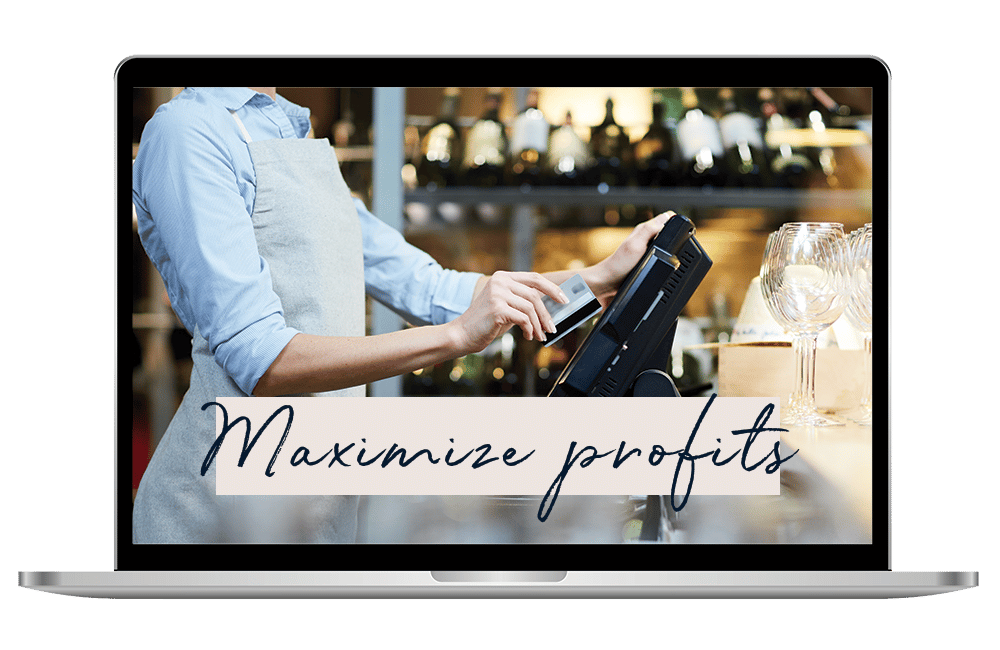
The three costly mistakes you could unknowingly be making?
Find out in this FREE guide and restaurant assessment specifically designed to reveal the unexpected hurdles standing between you and exponential business growth.
Thank You To Our Sponsors
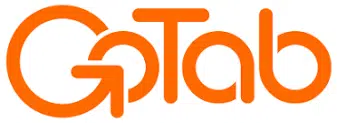
For a limited time only, popmenu is offering our listeners $100 off your first month plus an unchanging lifetime rate.
Request a DEMO:
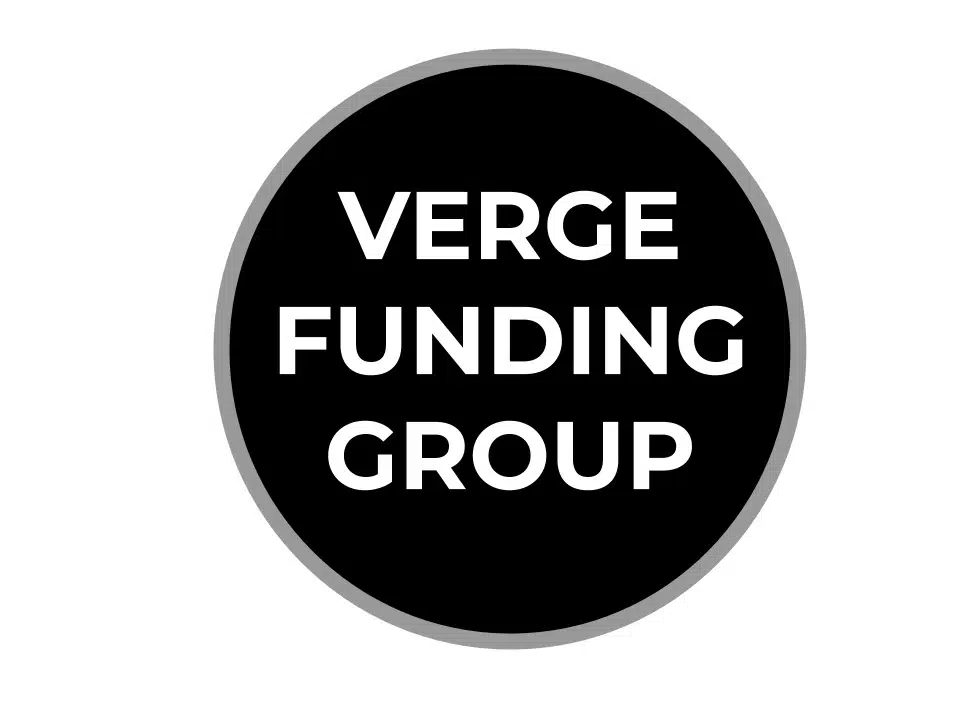
Find Out How Much Your Business Is Due Back from the ERC Program
Set Up a Call with Karen the Owner of Verge Funding
Want to become a podcast sponsor?
Please get in touch with Roger at roger@restaurantrockstars.com

